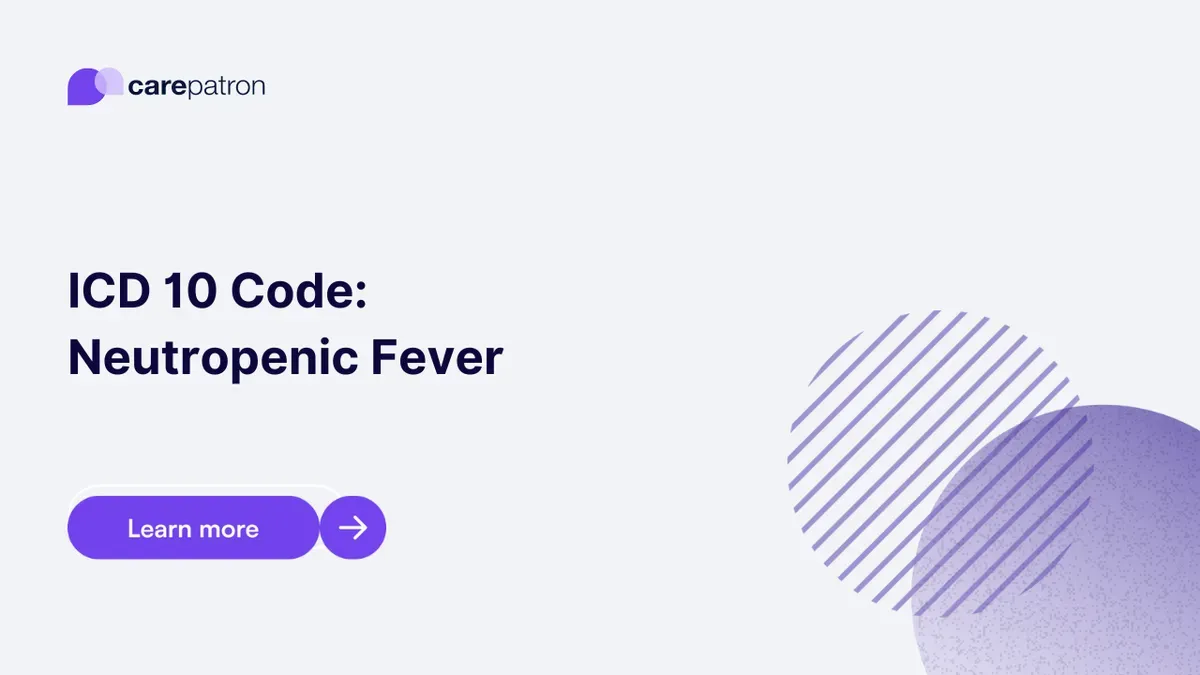
Neutropenic Fever ICD-10-CM Codes
Read this short guide and learn about neutropenic fever ICD codes you can use. Discover billing and clinical information.
Use Code
Commonly asked questions
Yes, but we don’t recommend using them because they are invalid.
Healthcare professionals will conduct a complete blood count. They might take a sample of bone marrow if needed.
Healthcare professionals may administer/prescribe antibiotics, corticosteroids, and/or G-CSFs.
EHR and practice management software
Get started for free
*No credit card required
Free
$0/usd
Unlimited clients
Telehealth
1GB of storage
Client portal text
Automated billing and online payments
